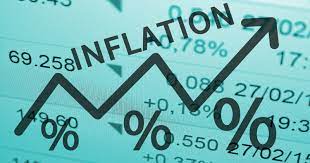A rate increase was needed to prevent inflation-expectations from stymieing growth
The RBI’s Monetary-Policy-Committee on Friday raised the benchmark-interest-rate for a third straight meeting as policymakers battle to rein in inflation that has persistently ‘remained at or above’ the prescribed upper-tolerance-threshold for six months. The 50 basis-points raise takes the policy repo-rate to 5.4%, and, more significantly, to a level last seen in the pre-pandemic second quarter of fiscal 2019-20, when a growth slowdown and retail inflation of about 3.2% warranted a rate cut. As the MPC’s Jayanth Varma had pointed-out in June, when the MPC had recommended a 50 basis points increase, the impact of the 90 basis points total increase from May still left the real-policy-rate at the time lagging-behind the RBI’s 100 basis points increase in retail inflation projection for the year — from 5.7% to 6.7%. It is only now that the cumulative increase totals 140 basis points, and puts the central bank slightly ahead-of-the-curve. Still, as Governor Shaktikanta Das acknowledged, consumer price inflation, even if off April’s eight-year high, remains ‘uncomfortably high’ with inflationary pressures broad-based. And with the MPC’s own forecasts for the second and third quarter pegging retail price gains well above the upper tolerance mark of 6%, at 7.1% and 6.4%, respectively, the-rate-setting-panel had little option but to continue the withdrawal of monetary-accommodation to prevent inflation expectations from getting unmoored and stymieing growth by retarding consumption.
From an external sector and exchange rate perspective as well, globalised inflationary surges are prompting policy-tightening in advanced-economies that is in-turn roiling currency markets including appreciably weakening the rupee and adding imported-inflation to the mix. Noting that ‘successive shocks to the global economy’ had led multilateral institutions including the IMF to lower their global growth projections and ‘ highlight the rising risks of recession ’, Mr. Das remarked, “disquietingly, globalisation of inflation is coinciding with deglobalisation of trade”. Russia’s invasion of Ukraine and the resultant impact on trade flows from the conflict zone have upended supply chains for several commodities and added-to price pressures for a range of goods. The latest geopolitical tensions triggered in East Asia by U.S. House Speaker Nancy Pelosi’s visit to Taiwan in-the-face-of Beijing’s dire warnings, and China’s decision to respond with aggressive military drills around one of the world’s busiest shipping lanes, could also impact global trade at a time when uncertainty and risk-aversion are already high. Mr. Das’s confidence in the ‘resilience’ of the economy’s fundamentals notwithstanding, it is probably apposite for the MPC to hereafter heed Mr. Varma’s exhortation by ‘providing projections of the future path of the policy rate’. This would help anchor price gain expectations firmly and surely enhance the RBI’s inflation-fighting credentials.
(Source: The Hindu, it is meant for educational purposes only)
